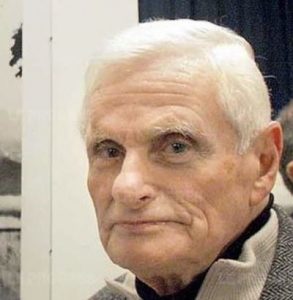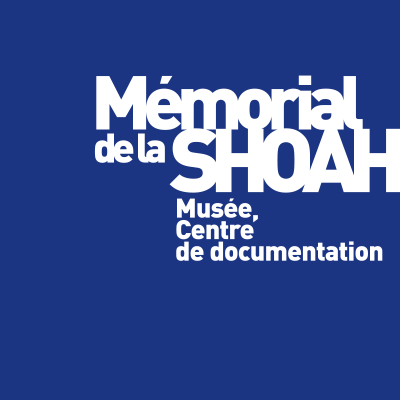Paul Niedermann, child of Izieu, died on December 7, 2018
Born in 1927 in Karlsruhe, Germany, Paul Niederman was one of the 6,500 Jews from Baden, Saarland and Palatinate who were deported to France in October 1940. After having suffered several months of antisemitic persecution, he was interned at the camp of Gurs, then at Rivesaltes. In 1942, with his brother Arnold, he escaped deportation to Auschwitz thanks to Sabine Zlatin, the "Dame d'Izieu" who worked for the OSE (Œuvre de Secours aux Enfants) that he followed in Izieu, in the Ain, before moving to Switzerland. Paul Niedermann died on December 7, 2018 at the age of 91. We pay tribute to him.

Photo Maison d'Izieu/ Henry Alexander
In 1942, helped by the couple Zlatin, Paul Niederman is sheltered in Palavas-les-Flots, then Lodeve. He joined the "Colony of refugee children from Hérault" in Izieu in May 1943. For one year, the colony of Izieu will accommodate 105 Jewish children.
In September 1943, Paul left the colony to go underground in Switzerland. Aged sixteen, the young boy began to awaken suspicions about the colony and a benevolent gendarme had alerted Miron Zlatin. He thus escapes the raid of April 6, 1944 during which 44 children and 7 educators are arrested on the orders of the Gestapo of Lyon, headed by Klaus Barbie. Those will be taken to the camp of Drancy, before being deported to Auschwitz-Birkenau for the majority.
Paul Niedermann had testified during the Klaus Barbie trial in France in 1987. He had returned to settle in France after the war, he subsequently often testified about his past as a persecuted Jewish child in France and Germany with the students.
All our thoughts today go to his loved ones.
The House of Izieu pays tribute to him with this excerpt from a testimony left during his stay in Izieu:
For me, this house in Izieu looked like a haven of peace, because we were really far from the world, we didn’t see anyone, except some peasants from the hamlet next door. Théo laughed a lot. I had relatively few contacts, especially with the little ones. On the other hand, what remains in my mind all the time is the evening, on the steps, in front of the house, around the fountain and on the famous terrace, where so many photos were taken. We talked about the post-war period, where we would meet, what we would like to do. I would say that I have seen relatively little of Mrs. Zlatin herself because, at that time, she was traveling a lot for the needs of the cause. I was much more in contact with her husband. He was truly a very kind man and I think he was of great kindness, and of enormous physical strength. I made the acquaintance of Paulette Paillarès, who had come during her vacation. She was a high school student, she was one year older than me, she had come to spend holidays in Izieu precisely to help the monitors with the little ones. I had rather contacts with Paulette, with Henry, with Arnold and Théo, and we were the big ones, we were a group apart.
I also remember at least twice in the summer, swimming in the Rhône with Léon Reifman, where it was necessary to go down for kilometers through the fields and we arrived and... my faith, he must have spotted places because the Rhône, in places, it’s quite dangerous, there are holes, there are eddies and he had to, I suppose, spot that very carefully because, well, nothing ever happened. In the monitors no one spoke German and even Yiddish, and no one wanted to speak it; they wanted us to speak French. And it was good.
We sometimes talked about our families and there, it was much more painful because I knew from a Polish friend, since the month of January 1943, that people had been deported to Poland and that they were killing there. I did not know how or where, I had never heard of Auschwitz nor of gas chambers nor crematoria, but I knew that they were killing and I knew that I would not see my parents again, that there was practically no chance.”
Source: Testimony of Paul Niedermann on the House of Izieu, transcription of the soundtrack 'Les voix d'Izieu' broadcast in the house.
Discover the books of Paul Nierdermann on our online bookstore
Listen again to the testimony of Paul Niedermann on France Culture

